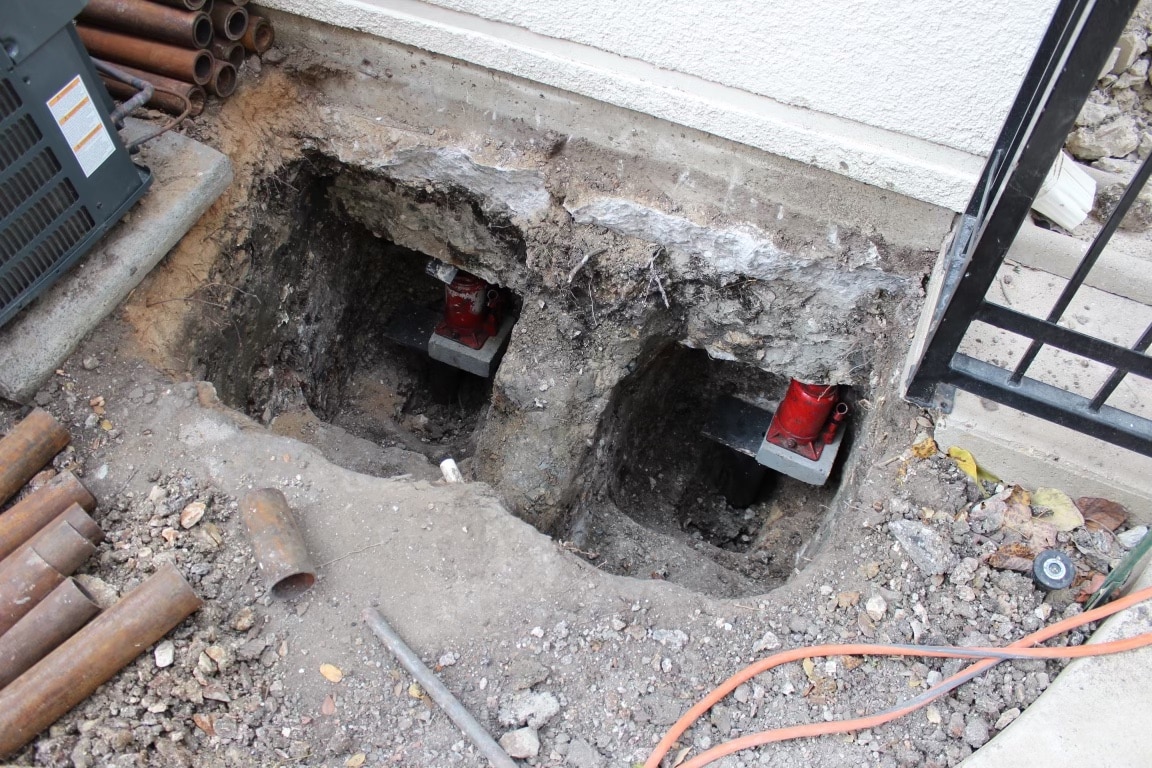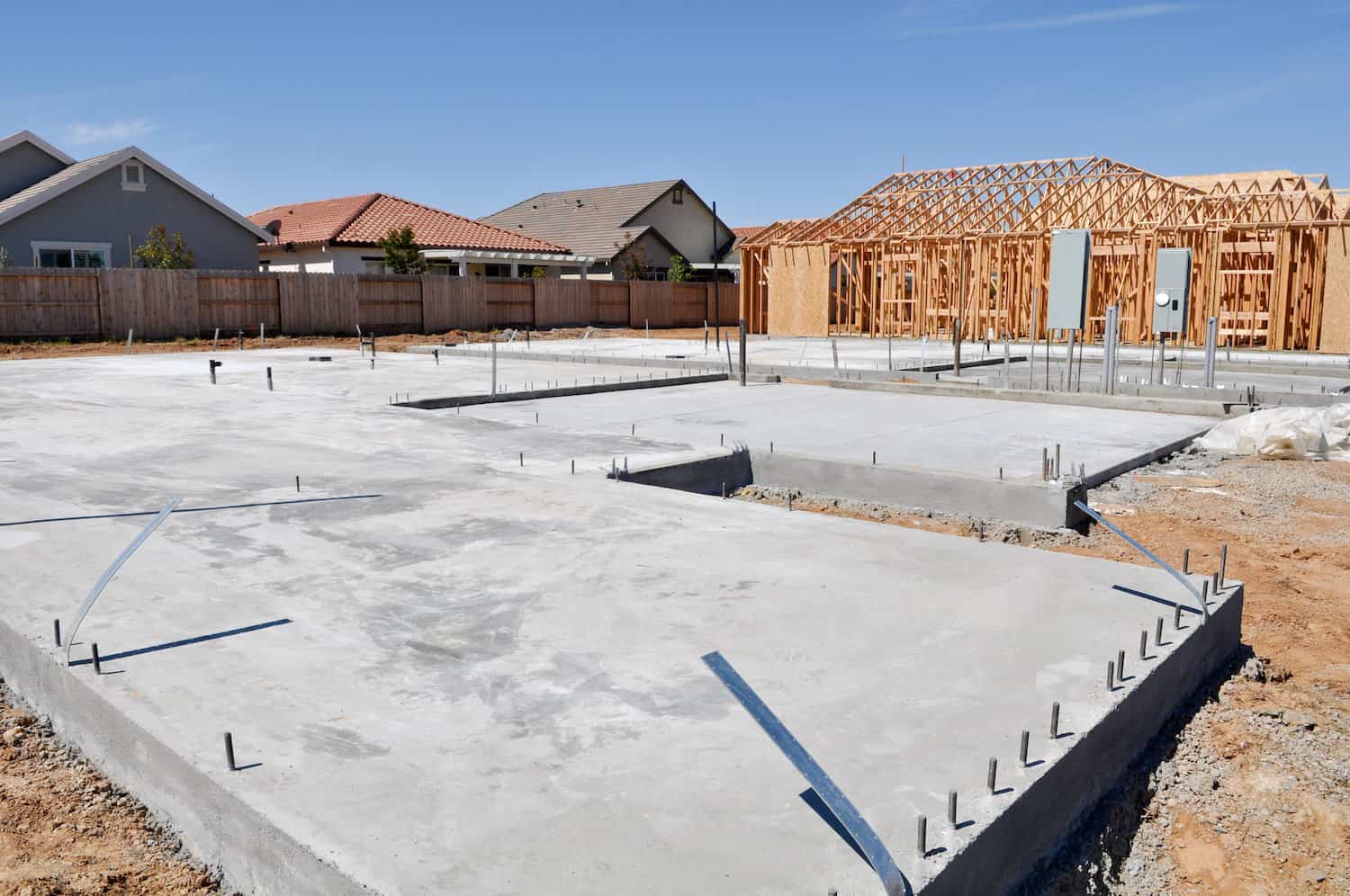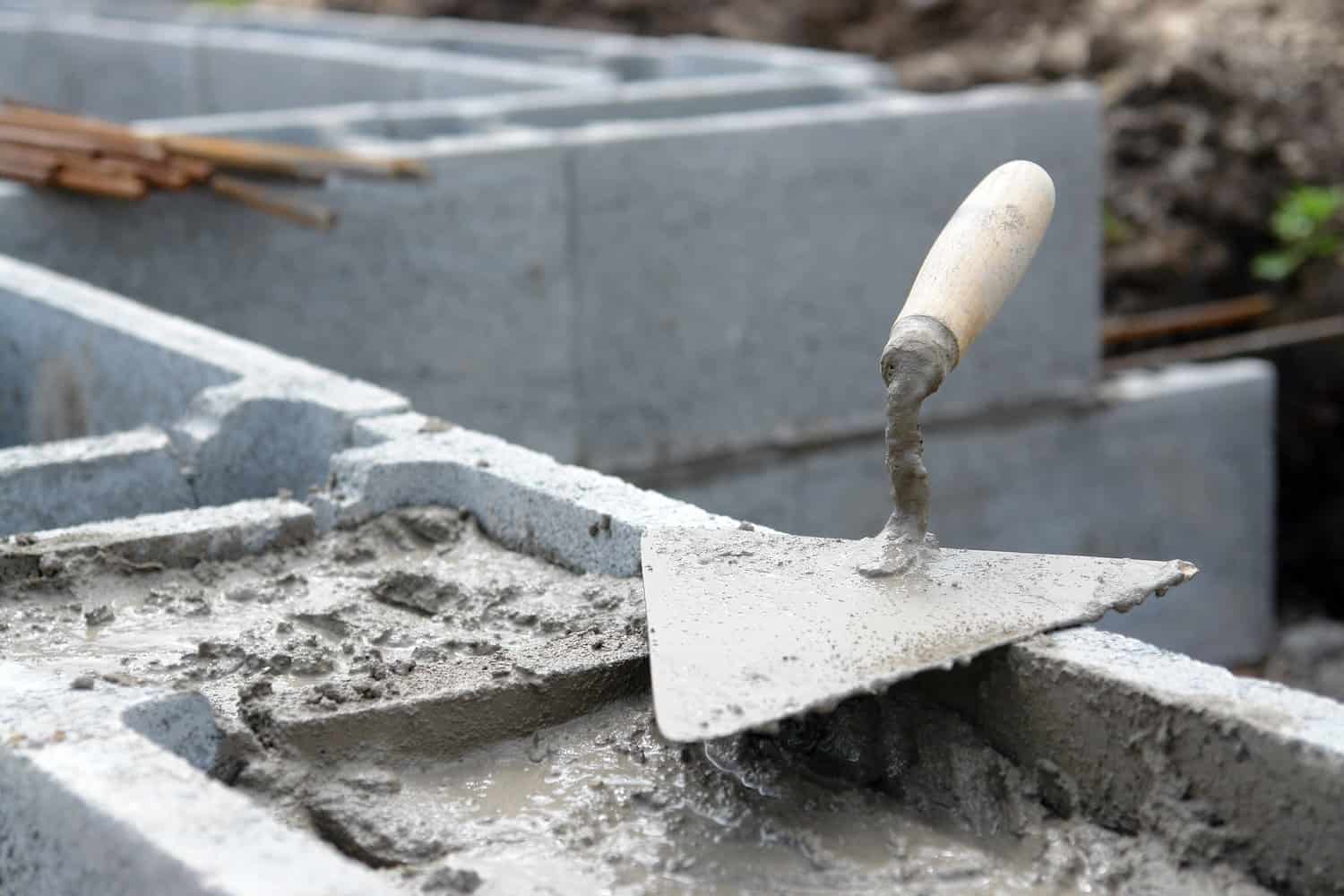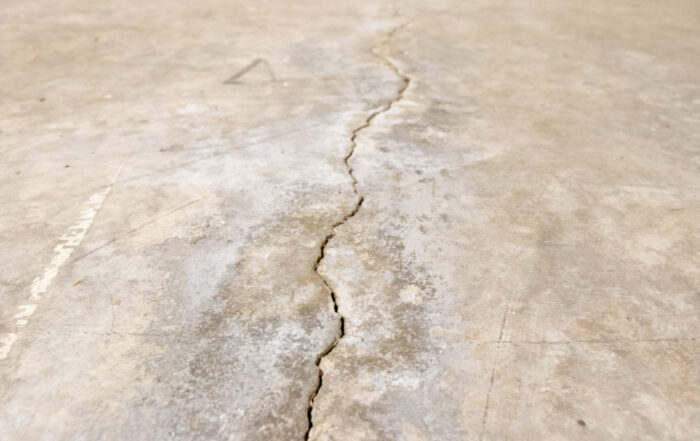8 Types of Foundations Compared (Pros & Cons)

So many homeowners fail to even think about their foundation until an issue arises— and that’s a problem.
Foundation is vital to upholding the integrity of a house. It’s the framework for building your dream home, as well as the solid ground where you create memories with family, feel secure, and, yes, store all the Christmas boxes in the basement.
And if that foundation fails, you not only risk expensive foundation repairs but irreparable damage to sentimental items, including those old Christmas decorations.
While it can be easy to ignore your foundation, it’s important that you don’t. Most homeowners may not even know that there are a multitude of different foundation types to choose from, each with its own benefits, disadvantages, and life spans— and all worth looking into.
If you’re trying to improve or fix your foundation, are starting a new home build, or just curious about home foundations— our foundation types guide can help compare the best and the worst to choose from. Check it out!
The Benefits of a Good Foundation
Before we jump into foundation types, let’s first go over the benefits of having a good foundation. After all, it is the foundation of your home (literally).
A good foundation should:
- Be strong and long-lasting
- Protect your home from moisture damage
- Support your home’s weight
- Settle evenly
- Protect against pests like termites
- Insulate your basement
- Be simple to repair should an issue arise
What Happens if You Ignore Foundation Repairs?
While we wish our foundations could last forever, sometimes that just isn’t the case. And as a homeowner, it’s important to note any changes to your existing foundation such as cracks or standing water, so that you can act fast to remedy the situation. Ignoring foundation repairs can result in some serious consequences, including:
- Structural damage to your home
- Water damage
- Mold and mildew growth
- Sinking or settling foundations
8 Popular Foundation Types:
There are many different types of foundations for your home. Some are more prevalent than others, but all are critical to maintaining a solid house foundation.
Poured Concrete Slab

A poured concrete foundation is one of the most popular foundation types in the United States. It’s made by excavating the site where your foundation will be, then forming and pouring concrete into the excavation. Once cured, this creates a solid foundation for your home.
👍 Pros:
- One of the strongest foundation types available.
- Waterproof and resists mold and rot, making it a good choice for homes in damp or wet climates.
- Less likely to settle than other foundation types.
👎 Cons:
- If not properly installed, can crack and allow water damage.
- May be susceptible to heaving in cold climates due to freezing and thawing cycles.
- Expensive to repair if damaged.
Crawl Space Foundation
Crawl space foundations are created by excavating the area beneath your home to create an empty area, or crawl space, between the foundation floor and the house. A crawl space foundation is made of a combination of poured concrete, then footings and walls.
👍 Pros:
- Easier to access plumbing and wiring for repairs
- Extra storage space beneath the home
- Can be used in any climate
👎 Cons:
- Susceptible to flooding if not properly waterproofed
- May allow access for rodents and other pests
- Difficult to insulate effectively
Wood Foundation
Wood foundations are created by, you guessed it, wood. This type of foundation was once popular, but has since been replaced by poured concrete and block foundations. Wood foundations are made with wooden posts or columns set into the ground and capped with a beam. A wooden floor is then fastened to the beam to create a stable foundation for your home.
👍 Pros:
- Cheaper and easier to install than other foundation types
- Can be built on any type of terrain
- Less likely to settle than other foundation types
👎 Cons:
- More susceptible to fire damage
- May rot or warp over time, leading to instability
- Attracts pests like termites and carpenter ants
Stone
The stone foundations popular in the early 20th century feature stones fastened together with mortar spread between them. Stone foundations are beautiful and strong but do require waterproofing to prevent mortar deterioration and losing the wall’s durability and strength. Water leaks will also occur in stone foundations if the house is not level or constructed properly, causing them to crack and bow.
👍 Pros:
- Beautiful aesthetic
- Can be refilled to waterproof
👎 Cons:
- Can cause water leaks which lead to mold growth
- Deteriorate easily on uneven ground
- Require waterproofing to work properly
Pre-Poured Concrete
Pre-poured or precast foundations are a great option for larger commercial projects, but can also be used on residential homes as well. They work by pouring concrete into a mold and then lifting it into place on the prepared site. This type of foundation is strong and can be used in any climate but is more expensive than other foundation types.
👍 Pros:
- Strong and durable
- Can be used in any climate
- Waterproof
- Cut down on construction costs and time
👎 Cons:
- Hard to replace as it needs a new mold
- Transportation to the construction site can prove difficult and risky
Concrete Masonry Units

Concrete masonry units are made from stacked cinder blocks that are spread with mortar between each row, like bricks, and stacked until the appropriate height and width of the foundation are reached. They’re relatively DIY friendly, but must be installed appropriately to prevent water infiltration.
👍 Pros:
- Energy efficient
- Low maintenance
- Sustainable and green properties
👎 Cons:
- Have less thermal resistant
- Not resistant to water penetration unless sealed with an additional coating
ICF Walls
Insulated concrete forms (ICF) walls are a type of foundation made of polystyrene foam blocks that are filled with concrete. They’re a popular choice for both residential and commercial buildings as they’re extremely strong and energy efficient. ICF walls can be more expensive than other foundation types, but the long-term savings on heating and cooling costs make them a wise investment.
👍 Pros:
- Double the compressive strength of poured concrete
- Resistant to up to 200mph winds
- High fire resistance rating
- Resistant to termites and other pests
- Built-in thermal ratings of R20 or more
👎 Cons:
- Expensive (nearly 10% more than other foundation types)
- Can experience issues with humidity
- Must be treated for additional moisture and insect protection
- More materials to install
- Difficult to add on or remodel
Pier and Beam Foundations
Pier and beam foundations are created by setting wooden posts or concrete piers into the ground, then capping them with a beam. A wooden floor is then fastened to the beam to create a stable foundation for your home. This type of foundation is popular in areas with high water tables or unstable soils as they can be built above ground level, preventing flooding and foundation settling.
👍 Pros:
- Easier to repair than other foundation types
- Can be built on any type of terrain
- Prevents flooding and foundation settling
👎 Cons:
- More susceptible to fire damage
- May rot or warp over time, leading to instability
- Attracts pests like termites
As you can see, all of the different types vary primarily by cost, basic structure, and moisture resistance. Depending on your needs, they can be highly beneficial to any homeowner. At Perma Pier, we work with many different types of foundations, but mostly pier and beam and concrete slabs, both of which work great for homes across Texas.
Work With a Solid Foundation Company
When it comes time to get your custom build a foundation, or when you just need foundation maintenance, finding a reputable foundation company to get the job done is vital. Perma Pier works to help you determine which type is best for your needs. We also offer a variety of other services like pier and beam leveling, mudjacking, and concrete repair. Give us a call today to set up a free consultation!



